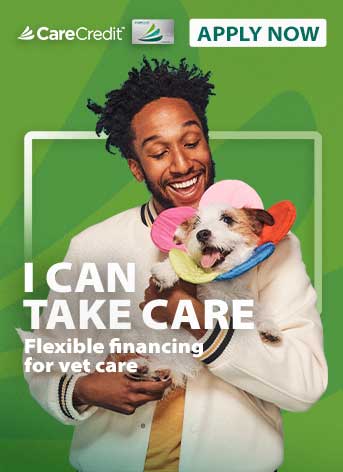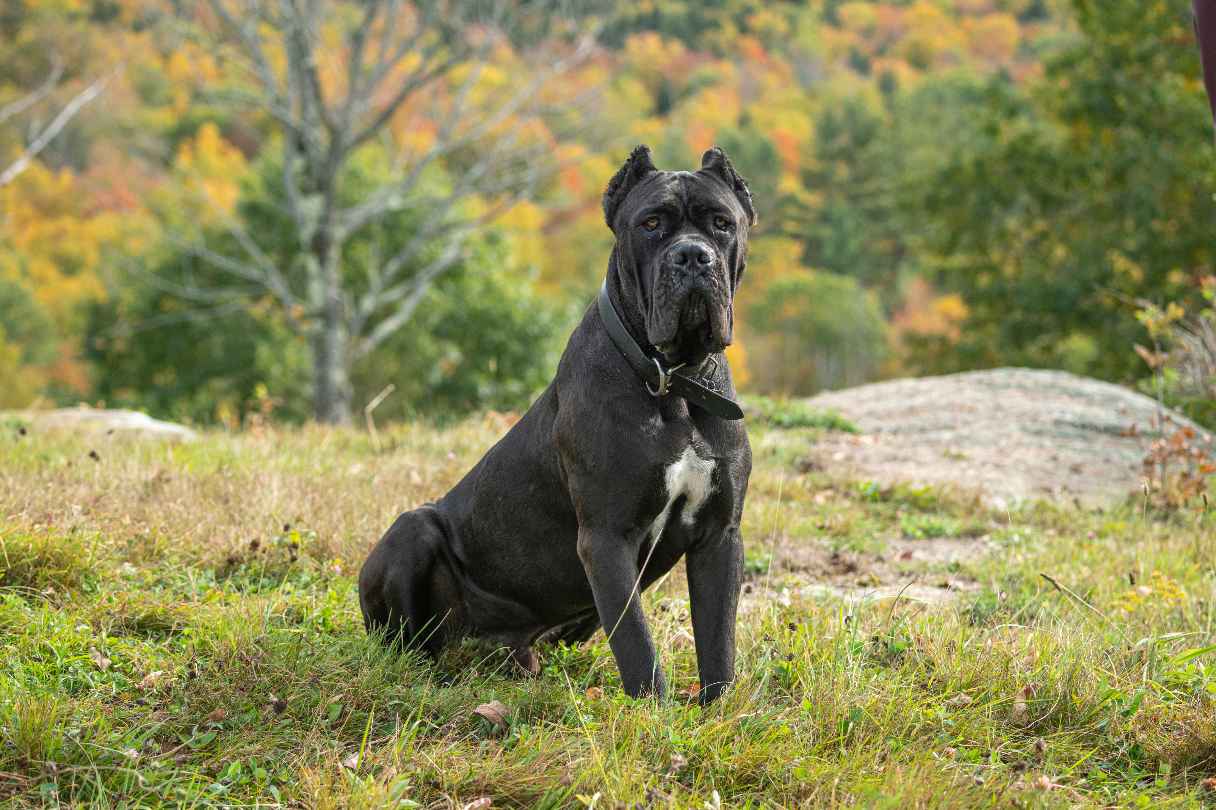If your dog is hacking and coughing or doing their best impersonation of a goose, they may have contracted kennel cough. Similar to a cold, in many cases, dogs recover within a couple of weeks, often without any treatment. However, in some cases, it can develop into life-threatening pneumonia.
Below, we explore 10 common questions about the causes, symptoms and treatments for kennel cough, along with steps you can take to protect your pup.
1. What Is Kennel Cough?
Kennel cough is a general term for Canine Infectious Respiratory Disease (CIRD) that affects dogs and puppies in the upper respiratory tract. CIRD is more common among puppies and juvenile dogs, although older dogs are still susceptible.
Just as the terms “cold" and “flu" can refer to a wide range of viruses and infections in humans, kennel cough also can refer to a number of different viral and bacterial infections. The different types of specific infections which may fall under the umbrella term "kennel cough" include:
- Bordetella bronchiseptica: a highly contagious bacterial illness that is the number one cause of kennel cough.
- Canine adenovirus type 2 (CAV-2): not to be confused with type 1, which causes canine hepatitis, this virus causes infectious tracheobronchitis, another form of kennel cough.
- Canine parainfluenza virus: a ribonucleic acid (RNA) virus that causes infectious respiratory illness and is another common cause of kennel cough.
- Canine respiratory coronavirus: although not related to the virus that causes COVID-19, this virus is closely related to the common cold in humans, and affects dogs in a similar fashion.
2. How Do Dogs Get Kennel Cough?
Similar to how humans catch a cold, dogs catch kennel cough by inhaling bacteria or virus particles in contaminated areas. Kennel cough is spread through infected droplets in the air or coming into contact with infected surfaces. It's typically spread by dogs coughing and sneezing around other dogs, by dogs bumping noses while greeting one another or playing together or by sharing objects such as toys or drinking bowls. Kennel cough tends to primarily affect dogs that spend a lot of time around other dogs at places like boarding hotels, doggie daycare, animal shelters and dog parks. Often, dogs develop signs of kennel cough after spending an extended amount of time around other dogs in these areas, especially if they have not received their Bordetella vaccine.
3. What Are the Symptoms of Kennel Cough?
Kennel cough symptoms can appear two to five days after your dog has been exposed, but keep in mind that they can be contagious before symptoms appear. The most obvious symptom is a persistent cough — either dry and hacking, or like a loud honk. In some cases, kennel cough can also cause gagging, vomiting, sneezing, a runny nose and eye discharge.
Other symptoms of kennel cough may include:
- Retching or coughing up white foam
- Lethargy
- Fever
- Appetite loss
- Labored breathing
It is important to note that many dogs with kennel cough do not act sick. They are their usual active selves, eating and drinking, but coughing excessively. If your dog is coughing and acting ill, be sure to contact your veterinarian.
4. How Long Does Kennel Cough Last?
Kennel cough typically lasts 10 to 14 days, and most dogs get better on their own. A cough or other symptoms, like fever or runny nose, that last longer than this could be a sign that your dog has developed a more severe infection.
Prolonged persistent coughing can also be a sign of a more serious or chronic condition, such as distemper, heart disease or asthma. If your dog isn't better after two weeks, or displays symptoms other than those listed above, you should have them seen by a vet.
5. Is Kennel Cough Contagious? For How Long?
Don't be in a rush to get back to normal after your pup stops coughing. Infected dogs with kennel cough remain contagious for about a week after their symptoms go away. You'll need to keep them isolated away from other dogs for a full week after they stop coughing, although some experts recommend keeping them quarantined up to two weeks after symptoms stop to be safe.
6. Can Cats Get Kennel Cough?
Whether your kitty can catch kennel cough from your infected pup depends on the type of infection causing the illness. While canine-specific viruses can't be transmitted from dogs to cats, Bordetella, which is a bacterial infection, can be passed from dogs to cats, and vice versa, as well as between infected cats. Cats suffering from kennel cough display symptoms similar to those in dogs.
7. Is Kennel Cough Contagious to Humans?
Although it doesn't happen often, humans can contract Bordetella from infected pets, but it's highly unlikely that this would result in a severe illness. Caution should be exercised around babies, the elderly and other immunocompromised individuals, just to be safe.
Also, people can transmit the infection from one pet to another, so you should wash your hands thoroughly with soap and water after handling a pet with kennel cough or any objects with which they've come into contact, and avoid kissing and hugging your sick pet.
8. Is Kennel Cough Deadly?
Healthy dogs with a strong immune system typically recover from kennel cough with no lasting complications. However, kennel cough can pose a life-threatening danger to puppies, aging dogs, pregnant dogs and dogs with other serious health conditions or pre-existing respiratory illnesses. These dogs are at risk of developing pneumonia if not treated. If your dog fits this profile, it's best to contact your veterinarian at the first sign of a cough.
9. What Is the Treatment for Kennel Cough in Dogs?
In mild cases, kennel cough is treated the same as the common cold, with rest, food and plenty of hydration. For dry, unproductive coughing, your vet may prescribe an over-the-counter cough suppressant to break up mucus but be sure to talk to your vet before administering any kind of OTC medication to your dog. Also, avoid giving them medication that contains acetaminophen or other pain relievers.
You can also try some home remedies to help your dog feel more comfortable:
- Mix one-half to one tablespoon of honey in warm water and give it to your dog to help ease coughing and soothe their throat. This can be given up to three times a day.
- Use a humidifier or bring your dog with you into a closed bathroom while you run a hot shower. The moist air can help reduce irritation and soothe your dog's respiratory tract.
- Cut back on exercise and give your dog a quiet place where they can rest away from noisy distractions.
- If you do need to walk them anywhere, use a harness that, unlike a collar, won't aggravate their cough by pressing on the trachea.
- Avoid smoking, using household cleaners or stirring up dust near your dog, all of which can increase irritation and make recovery more difficult.
In severe cases of kennel cough, your dog may need to be hospitalized in order to receive intravenous fluids and antibiotics, as well as oxygen therapy if they're struggling to breathe. Pet insurance can help pay for and mitigate the costs of an emergency hospitalization due to complications from kennel cough.
10. Can You Prevent Kennel Cough?
You can vaccinate your dog against Bordetella, as well as some of the other viruses that cause kennel cough. Most respiratory viruses don't have vaccines. While vaccinations won't prevent your dog from getting kennel cough, they may lessen the severity and help shorten the duration if your dog becomes infected. The Bordetella vaccine is available as both an injection or a nasal spray, and may need to be given every six months if your dog is at high risk for being exposed to kennel cough.
The price of the Bordetella shot varies based on a number of factors, including your geographical location, the size and weight of your dog and how much the veterinary clinic administering the shot charges. In general, this shot runs anywhere from $19 to $45.1 You may also need to pay for an office visit, so if your dog may be in a situation that will expose them to kennel cough, consider including it as part of their routine vet checkup and vaccination schedule.
CareCredit Credit Card Financing for Dogs
The CareCredit credit card provides a convenient way to pay for your dog's vaccinations and other health and wellness expenses, including exams, medications and products at providers in the CareCredit network.* Apply today and continue your wellness journey by downloading the CareCredit Mobile App. You can find a provider on the go, manage your CareCredit account and easily access the Well U hub for more great articles, podcasts and videos. Use our Acceptance Locator to find a veterinarian that accepts CareCredit to help keep your pet healthy and happy for a lifetime of love.
Expert Reviewer
Dr. Kathy Wentworth, V.M.D.
Dr. Kathy Wentworth has been caring for companion animals in Southern California for 22 years after graduating from the University of Pennsylvania's School of Veterinary Medicine. She grew up in Colorado and completed her undergraduate studies in Animal Physiology and Neuroscience at UC San Diego. Dr. Kathy furthered her passion as a veteran by becoming board certified as a Diplomate in Canine and Feline Practice by the American Board of Veterinary Practitioners (2010-2020).
Author Bio
Jean Marie Bauhaus is a freelance writer and novelist with eight years of experience. Her work has appeared on Hill's Pet, Chewy and AKC.org and more.








